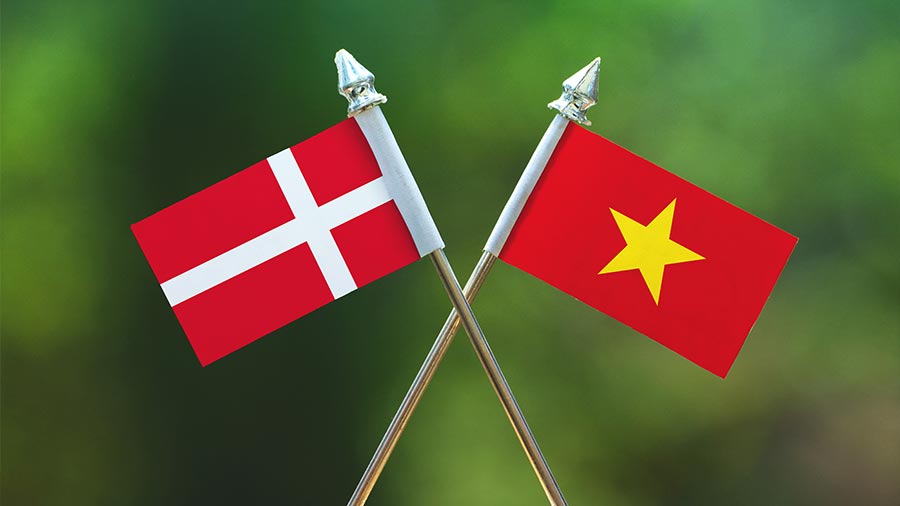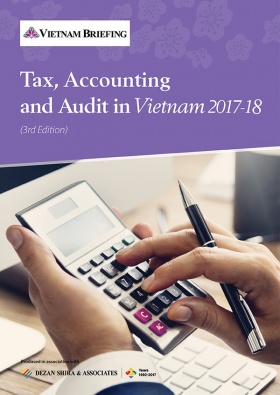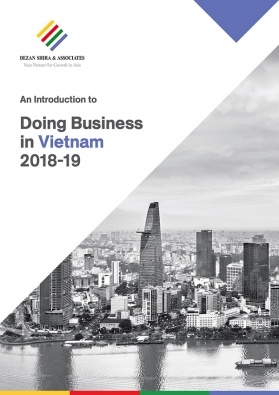Personal Income Tax in Vietnam: Exemptions and Reductions
For foreigners working in Vietnam, determining the applicability of personal income tax (PIT) involves decoding a number of rules. Following this, foreign workers need to calculate their precise liability and any applicable deductions.
Consulting with an in-country tax specialist can help individuals’ optimize their tax exposure, while employers’ may be able to identify more competitive salary packages with an advisor. Below we introduce the basics of PIT, before explaining tax-exempt incomes (employment benefits that are not subject to PIT) and tax reductions for dependents.
Residency status and PIT exposure
Vietnam’s Law on Personal Income Tax recognizes ten different categories of income, with a host of different deductions, tax rates, and exceptions applying to each of them.
A tax resident is defined as someone residing in Vietnam for 183 days or more in either the calendar year or a period of 12 consecutive months from the date of arrival.
Tax residents are subject to PIT on their worldwide employment income, regardless of where the income is paid or earned, at progressive rates from five percent to a maximum of 35 percent. Non-resident taxpayers are subject to PIT at a flat rate of 20 percent on their Vietnam-sourced income.
In general, a typical monthly salary package in Vietnam will include gross salary and mandatory social security. PIT is levied on the balance after deducting mandatory social insurance contributions. Companies conduct PIT finalization on behalf of their employees at the beginning of the year for taxable income arising from the previous year.
Tax-exempt incomes
Vietnam’s tax authorities have singled out a number of incomes that are exempt from PIT. These include:
- Income from transfer of residential houses by individuals who possess only one residential house or land plot;
- Interest earned on deposit from the bank or from life insurance contracts;
- Overseas remittance, retirement pension, scholarship;
- Income from compensation for insurance contracts or from charity funds;
- Wages paid for night shift or overtime work, which are higher than those paid for day shifts or prescribed working hours in accordance with the law; and
- Income received from governmental or non-governmental foreign aid for charity or humanitarian purposes approved by competent state agencies.
The Vietnamese government released Resolution 954/2020/UBTVQH14 raising the PIT threshold, which will come into effect on July 1, 2020.
Therefore, a resident taxpayer will be allowed to deduct from his taxable income US$475 (VND 11 million) as compared to US$387 (VND 9 million) previously. The new policy will be retroactive and will apply from January 1, 2020. The yearly amount can be fully deducted, regardless of whether the taxpayer had an income every month.
Tax exemptions
In Vietnam, foreign individuals can be exempted from taxation for certain employment benefits. These exemptions include:
- One-off relocation allowance for foreigners to relocate to Vietnam;
- Round-trip airfares paid once a year by employers for foreign employees who are on annual leave; and
- General education school fees or tuition paid by the employer for the expatriates’ children studying in Vietnam.
Additionally, other benefits can be treated as non-taxable income if certain conditions are met. These include:
- Employee housing costs exceeding 15 percent of the total taxable income (excluding housing benefit from employers);
- Expenses for means of transportation for a group of employees to and from work;
- Training fee for employees relevant to employees’ profession and/or in accordance with the employers’ plan;
- Mid-shift meal allowances if the employers directly cater such meals for their employees; and
- Presumptive expenditures for telephone, stationery, per diem, working outfit, etc. are not subject to tax if the amounts are within the levels set out under relevant regulations.
Tax reductions for dependents
The newly introduced Resolution 954 also has provision for dependents. As per the new policy, the tax reduction for each dependent has been raised to US$192 (VND 4,400,000) from the previous US$157 (VND 3,600,000) per month. Qualified dependents are children aged below 18 years old, or children over 18 years old but earning a low income, which does not exceed US$43 (VND 1 million) per month. In addition, spouses or parents of taxpayers who are unable to work or have low income are also qualified dependents
Only one person can claim the reduction for each dependent. The dependent allowance is not automatically granted, and the taxpayer needs to register the qualifying dependent and provide the supporting documents to the tax authority.
Personal income tax deduction for dependents that are children require the following documents to qualify:
- Minor (Under 18 years old): Certified photocopies of birth certificate and national ID (If any).
- Disabled adult children (18 and above) without working capability: Certified copies of birth certificate, national ID (If any), and verification of disability documents.
- Adult children who are still in school: Certified copies of birth certificate, national ID (If any), and student ID as well as a certified affirmation from the schools or any documents proving the actual study at such schools.
- Adopted children/Illegitimate children/Stepchildren: In addition to the above-mentioned documents, the taxpayers will need to provide other documents to prove their relationship with such dependents as well as actual parenting obligations, such as copies of adoption dossier, decisions for recognition of children, and marriage certificates, etc.
Tax payment
Foreign invested enterprises (FIEs) have to conduct PIT finalization on behalf of their employees at the beginning of the year for taxable incomes arising from the previous year.
If an employee has more than one source of income and wishes to conduct tax finalization on their own, FIEs can issue a certificate of deduction at the request of the employee. If an expatriate’s labor contract in Vietnam expires before the end of a calendar year, they should conduct tax finalization before their departure.
The taxpayer pays PIT to the state treasury in one of two ways: cash or bank transfer. The taxpayer can pay cash directly to the state treasury to receive the voucher from state officials. Otherwise, they can transfer money to a tax office bank account at the state treasury. The deadline for tax payment is the same as tax finalization, meaning no later than 90 days from the end of the calendar year.
Conversion of taxable income
If the taxable income is received in a foreign currency, it must be converted into Vietnamese dong at the average trading exchange rate on the inter-bank foreign currency market published by the State Bank of Vietnam on the date when the income arose.
Note: This article was first published in April 2015, and has been updated to include the latest developments.
About Us
Vietnam Briefing is produced by Dezan Shira & Associates. The firm assists foreign investors throughout Asia from offices across the world, including in Hanoi, Ho Chi Minh City, and Da Nang. Readers may write to vietnam@dezshira.com for more support on doing business in Vietnam.
We also maintain offices or have alliance partners assisting foreign investors in Indonesia, India, Singapore, The Philippines, Malaysia, Thailand, Italy, Germany, and the United States, in addition to practices in Bangladesh and Russia.
- Previous Article Implementing the Law on Tax Administration: Decree 126
- Next Article Vietnam gründet Forschungsgruppe zur Untersuchung der Gesetzgebung zu Kryptowährungen






























